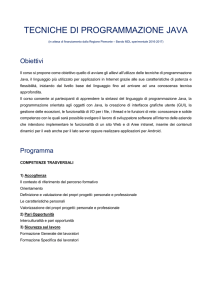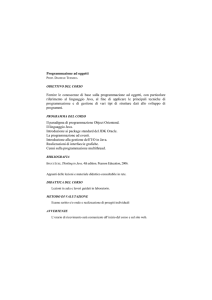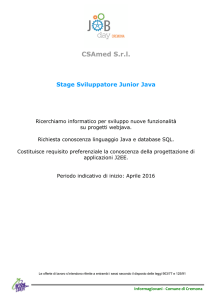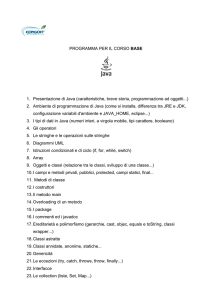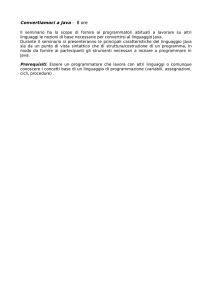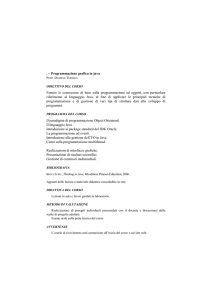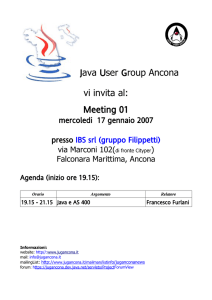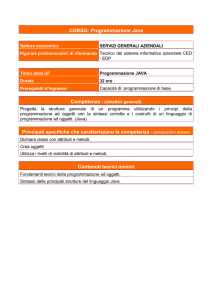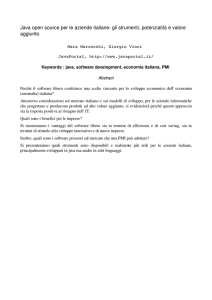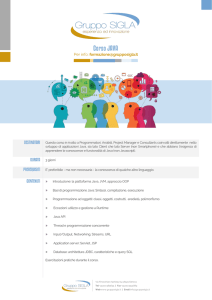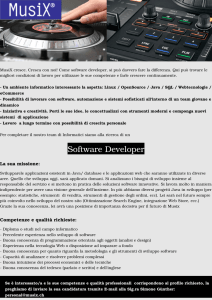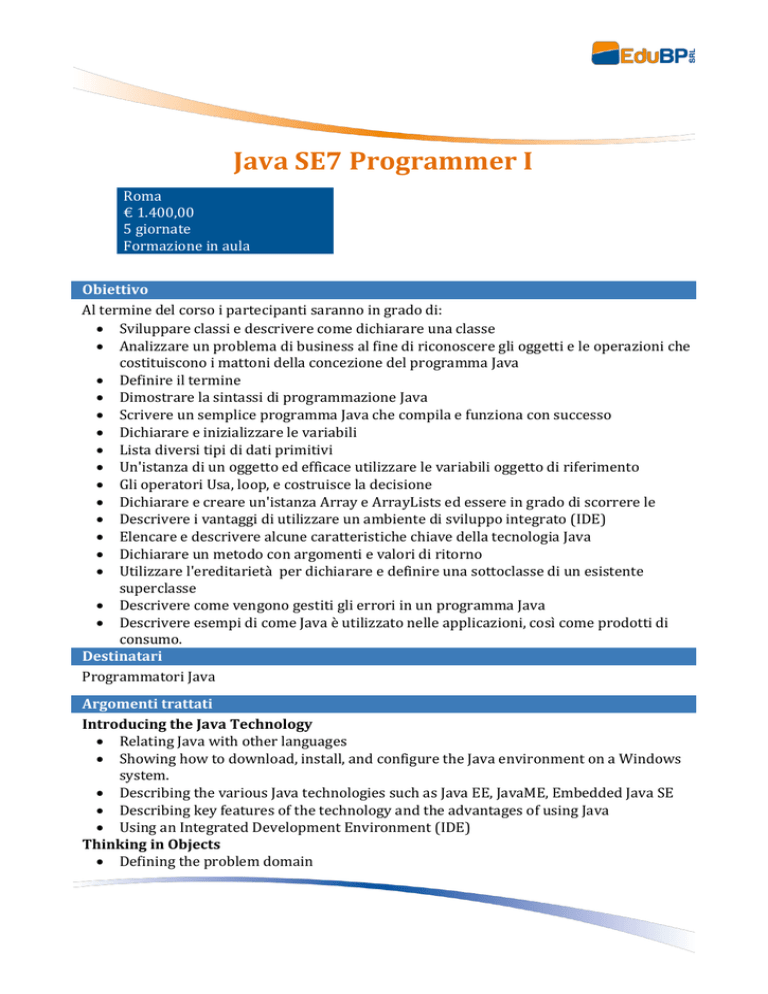
Java SE7 Programmer I
Roma
€ 1.400,00
5 giornate
Formazione in aula
Obiettivo
Al termine del corso i partecipanti saranno in grado di:
Sviluppare classi e descrivere come dichiarare una classe
Analizzare un problema di business al fine di riconoscere gli oggetti e le operazioni che
costituiscono i mattoni della concezione del programma Java
Definire il termine
Dimostrare la sintassi di programmazione Java
Scrivere un semplice programma Java che compila e funziona con successo
Dichiarare e inizializzare le variabili
Lista diversi tipi di dati primitivi
Un'istanza di un oggetto ed efficace utilizzare le variabili oggetto di riferimento
Gli operatori Usa, loop, e costruisce la decisione
Dichiarare e creare un'istanza Array e ArrayLists ed essere in grado di scorrere le
Descrivere i vantaggi di utilizzare un ambiente di sviluppo integrato (IDE)
Elencare e descrivere alcune caratteristiche chiave della tecnologia Java
Dichiarare un metodo con argomenti e valori di ritorno
Utilizzare l'ereditarietà per dichiarare e definire una sottoclasse di un esistente
superclasse
Descrivere come vengono gestiti gli errori in un programma Java
Descrivere esempi di come Java è utilizzato nelle applicazioni, così come prodotti di
consumo.
Destinatari
Programmatori Java
Argomenti trattati
Introducing the Java Technology
Relating Java with other languages
Showing how to download, install, and configure the Java environment on a Windows
system.
Describing the various Java technologies such as Java EE, JavaME, Embedded Java SE
Describing key features of the technology and the advantages of using Java
Using an Integrated Development Environment (IDE)
Thinking in Objects
Defining the problem domain
Identifying objects and recognizing the criteria for defining objects
Introducing the Java Language
Defining classes
Identifying the components of a class
Creating and using a test class
Compiling and executing a test program
Working with Primitive Variables
Declaring and initializing field variables
Describing primitive data types such as integral, floating point, textual, and logical
Declaring variables and assigning values
Using constants
Using arithmetic operators to modify values
Working with Objects
Declaring and initializing objects
Storing objects in memory
Using object references to manipulate data
Using JSE javadocs to look up the methods of a class
Working with String and StringBuilder objects
Using operators and decision constructs
Using relational and conditional operators
Testing equality between strings
Evaluating different conditions in a program and determining the algorithm
Creating if and if/else constructs
Nesting and chaining conditional statements
Using a switch statement
Creating and Using Arrays
Declaring, instantiating, and initializing a one-dimensional Array
Declaring, instantiating, and initializing a two-dimensional Array
Using a for loop to process an Array
Creating and initializing an ArrayList
Using the import statement to work with existing Java APIs
Accessing a value in an Array or and ArrayList
Using the args Array
Using Loop Constructs
Creating while loops and nested while loops
Developing a for loop
Using ArrayLists with for loops
Developing a do while loop
Understanding variable scope
Working with Methods and Method Overloading
Creating and Invoking a Method
Passing arguments and returning values
Creating static methods and variables
Using modifiers
Overloading a method
Using Encapsulation and Constructors
Creating constructors
Implementing encapsulation
Introducing Advanced Object Oriented Concepts
Using inheritance
Using types of polymorphism such as overloading, overriding, and dynamic binding
Working with superclasses and subclasses
Adding abstraction to your analysis and design
Understanding the purpose of Java interfaces
Creating and implementing a Java interface
Handling Errors
Understanding the different kinds of errors that can occur and how they are handled in
Java
Understanding the different kinds of Exceptions in Java
Using Javadocs to research the Exceptions thrown by the methods of foundation
classes
Writing code to handle Exceptions
The Big Picture
Creating packages and JAR files for deployment using java
Two and three tier architectures
Looking at some Java applications example
Prerequisiti
Nessun particolare requisito
Durata
5 giornate
Lingua
Italiano
Dove siamo:
Via A. Avogadro 54 - 00146 Roma
Contattaci a:
Tel: 06 45213400
Fax: 06 45213301
Mail: [email protected]
PEC: [email protected]
Modalità Iscrizione: Inviare una mail a: [email protected] con le informazioni riguardanti corso di interesse,
nominativo/i, recapiti

